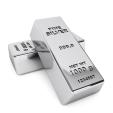Dollar Set for Best Week in 16 Months Before Jobs Report
New York (Nov 7) The dollar headed for its best week in 16 months before a jobs report while Standard & Poor’s 500 Index futures swung between gains and losses after the gauge closed at a record yesterday. European stocks fell and Brent oil was poised for its longest weekly decline in 13 years.
The Bloomberg Dollar Spot Index was little changed at 1,097.74 at 7:03 a.m. in New York, poised for a 1.5 percent gain this week. S&P 500 futures were little changed and the Stoxx Europe 600 Index slipped 0.2 percent. Emerging-market stocks fell for a fifth day in their worst week in two months. Brent oil headed for its seventh weekly retreat. Russia’s ruble rebounded 2.2 percent after weakening to an all-time low.
Employers in the U.S. probably added more workers last month and the jobless rate held at the lowest level since July 2008, economists said before the Labor Department report. While jobs data may indicate the economy is strong enough to keep the Federal Reserve on course to increase interest rates, central banks in Europe, Japan and China are signaling more easing.
“A lot of central banks are trying to weaken their currencies and the Fed, and possibly the Bank of England -- which is more neutral -- are the only ones not taking part in this race,” said Ulrich Leuchtmann, the head of currency strategy at Commerzbank AG in Frankfurt. “And we end up with a stronger dollar. It’s as simple as that.”
The Stoxx 600 erased its weekly gain, with banking shares leading declines. Societe Generale SA and UniCredit SpA dropped more than 2.5 percent.
Allianz Beats
Allianz SE, Europe’s biggest insurer, rallied 4.6 percent, the most in two years, after earnings beat estimates. Swiss Re AG, the world’s second-biggest reinsurer, rose 2.9 percent.
Fugro NV climbed 6 percent, heading for its biggest weekly gain since the Dutch deepwater-oilfield surveyor sold shares to the public in 1992. Earlier this week, Goldman Sachs Group Inc. advised investors to buy the stock, citing price declines this year. Fugro lost 75 percent in the first 10 months of 2014.
Transocean Ltd. slid 6.6 percent in early New York trading. The largest owner of offshore drilling rigs said it will delay posting third-quarter results and earnings will include impairmant charges of $2.76 billion.
The MSCI Emerging Markets Index fell 0.6 percent, extending its five-day slump to 3 percent, the worst performance since the period ended Sept. 12.
The ruble rebounded after earlier weakening as much as 3.8 percent to a record 48.6495 per dollar. The Micex rose 1.1 percent as the decline in the currency boosts the profit outlook for exporters. The dollar-denominated RTS Index slumped 3.5 percent, dropping below 1,000 for the first time since 2009.
Ukraine Fighting
Ukraine’s 2017 Eurobond fell for a fifth day, sending the yield up five basis points to a three-week high of 15.74 percent.
Ukraine said there were 26 outbreaks of fighting yesterday between its forces and separatists in the east, while the rebels said government troops had gone on a large-scale military push there. Russian President Vladimir Putin held a meeting with his security council last night on the escalation.
Nigeria’s naira fell as much as 1.6 percent against the dollar, before rebounding 0.8 percent. The central bank intervened in the market to defend the currency after it plunged to an all-time low amid a drop in oil prices, Deputy Governor Sarah Alade said.
The country’s benchmark stock index slid 4 percent, extending declines from this year’s peak in July to more than 20 percent, the threshold for a bear market.
Forecasts Cut
Brent crude was little changed at $82.84 a barrel, heading for its seventh weekly decline, the longest retreat since November 2001. West Texas Intermediate was little changed at $77.93 a barrel. The Organization of Petroleum Exporting Countries, which produces 40 percent of the world’s oil, cut every published forecast yesterday for demand for its crude through 2035, except for next year.
Gold advanced 0.4 percent to $1,146.51 an ounce and silver gained 0.5 percent to $15.49 an ounce, erasing earlier drops to the lowest level in more than four years. Platinum rose 0.2 percent and palladium climbed 0.6 percent. All four metals headed for a weekly decline. Government bonds were little changed, with the Treasury 10-year note yield at 2.39 percent, from 2.34 percent at the end of last week. Germany’s 10-year yield was at 0.84 percent.
Source: Bloomberg













